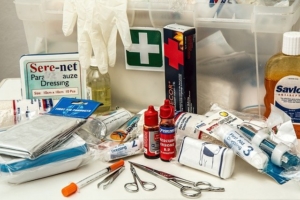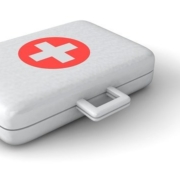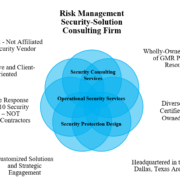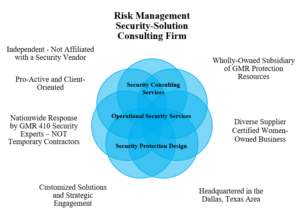Essentials for Family Hurricane Preparedness: Building Your Disaster Supply Kit
Hurricane season is unpredictable. If you wait until there is a named storm, you may not have time to  search for the supplies you need or shop for them. Planning is even more important pre-storm, as it may be more difficult to secure supplies, lodging and food. Now is the time to look ahead and start planning for the possibility of a large storm making landfall near you.
search for the supplies you need or shop for them. Planning is even more important pre-storm, as it may be more difficult to secure supplies, lodging and food. Now is the time to look ahead and start planning for the possibility of a large storm making landfall near you.
Here are some of the essentials to have on hand in your disaster supply kit for hurricane season:
- Medications – Keep a list of medications that you and your loved ones take, along with at least a week’s supply of your regular medications and medical supplies. If you regularly take insulin or another medication that requires refrigeration, make sure to keep a small cooler that you can easily fill with ice. Also, be sure to include a list of instructions, doctors’ orders, and dosage recommendations in case you need assistance communicating with others. In the case of a prolonged evacuation, patients with chronic conditions treated by high risk-controlled substances are advised to carry a pharmacy print out and letter from their doctor when seeking refills out of state. Additionally, if you find yourself feeling ill or having a question about a chronic illness, make sure you can connect digitally with your provider.
- Batteries – Stock up on extra batteries for everyday items like hearing aids, radios, and flashlights. Another must-have is a portable phone charger to ensure you have enough battery life to reach family, friends, medical providers, or coworkers if necessary.
- First Aid Kit – Stock (or restock) your first aid kit. Make sure to include ace bandages, Band-Aids, thermometer, aspirin, and antiseptic swabs.

- Food – For each family member, pack a three-day supply of non-perishable foods like peanut butter, protein bars, canned goods, meal replacement shakes and cheese crackers. Be sure to include plenty of infant formula and diapers if you have an infant.
- Water – Have at least a three-day supply of clean, drinkable water per person in your household. Estimate one gallon of water per person per day for drinking and sanitation.
- Waterproof Container – Store all your essentials needed for an evacuation in a waterproof container, preferably one that is insulated.
- Other Items – Make sure you have a battery-powered radio and a NOAA Weather Radio with tone alert. Other items to consider include:
-
- A whistle to signal for help
- PPE such as masks, gloves, face shields, and hand sanitizer
- A tent or plastic sheeting and duct tape to shelter-in-place
- A wrench or pliers to turn off utilities
- Baby wipes, garbage bags and plastic ties
- Emergency reference materials, such as a first aid book
- Rain gear
- Paper cups, plates, and plastic utensils
- CASH
- Compass
- Matches, in a waterproof container
- Disinfectant
It is important to assemble your kit well in advance of an emergency. You may need to evacuate at a moment’s notice and just take the essentials with you.
Also, families should develop a Communication Plan. In addition to having your mobile phone and a back-up battery, talk with family or friends ahead of time to develop a plan. Designate a place to meet in the event you are unable to make contact via phone or text messaging.
By taking the necessary steps now, you can be better prepared for anything that might happen during hurricane season.
Mary Gates is a vice-president of GMR 410, LLC, a risk-solution security consulting firm and wholly owned subsidiary of GMR Protection Resources Inc. Learn more at www.gmr410.com.
ABOUT GMR 410, LLC
Our security consultants have decades of experience advising regional and global clients across numerous industries including automotive, construction, energy, financial, real estate and more. GMR 410’s services help create a safe environment with thorough threat assessments, policy and procedure review and development, and security audits. Unfortunately – and often without warning – a crisis occurs. Such events may include natural or man made disasters or criminal activities. Tap into GMR 410’s experience to ensure that you and your teams are prepared to respond to any crisis management or emergency situation.




